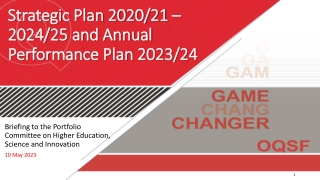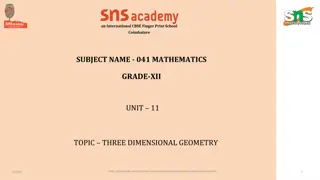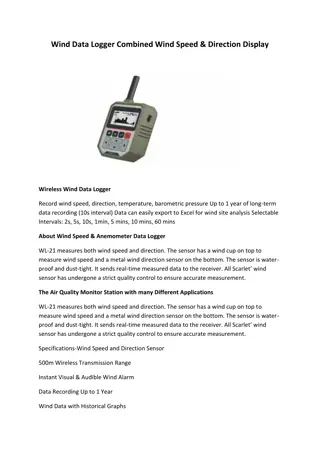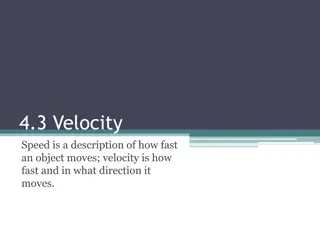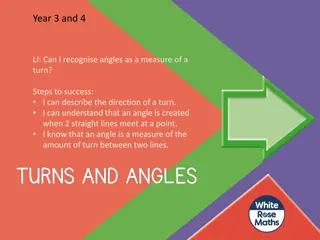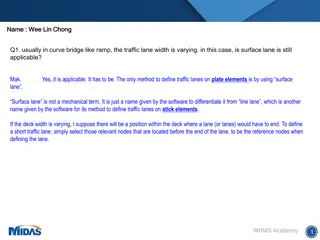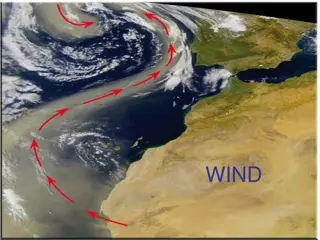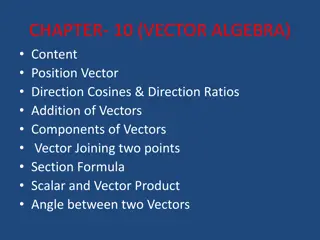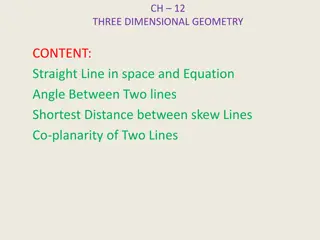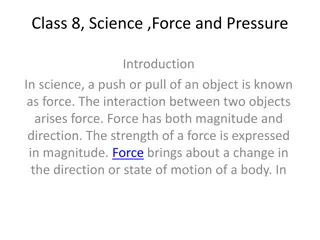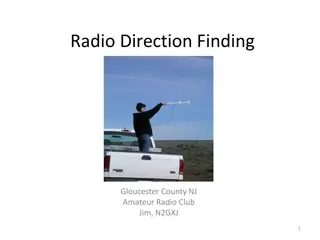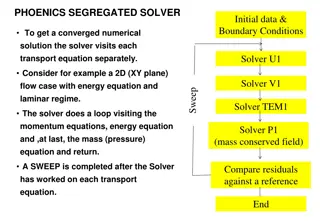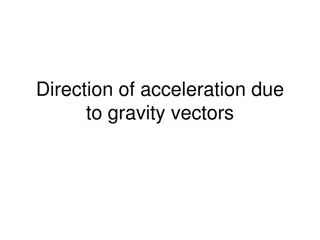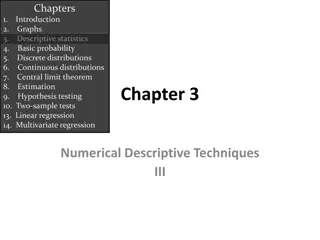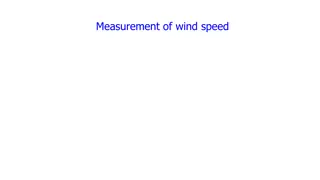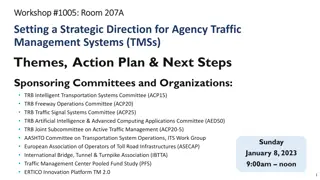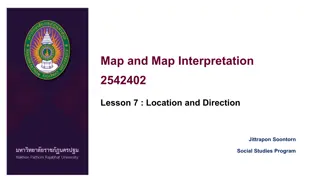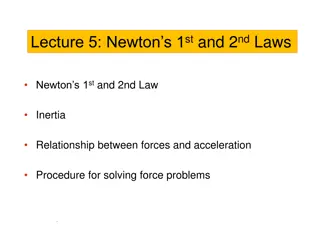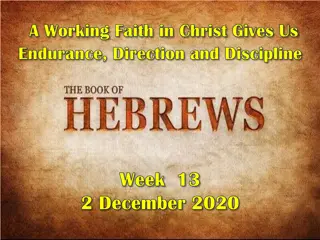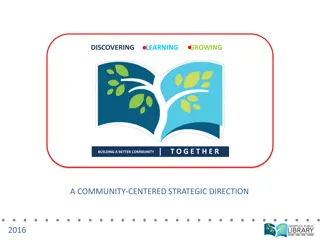Self-Hired Supported Employment in a Self Direction Budget
Council meeting discusses self-hired supported employment services and the steps required prior to receiving them. It covers topics such as discovery, SEMP authorizations, required paperwork, staff requirements, and more.
0 views • 27 slides
Allied Professions Leadership Team
The Allied Professions Leadership Team is aligned to our organization's strategic priorities and the direction of the new health system. Our purpose and focus are to provide exceptional care and services that meet the needs of our community.
0 views • 15 slides
Weather Map Interpretation
Weather maps provide data on various weather elements at a specific time. They show isobars, wind direction, cloud cover, rainfall, and more. Weather maps differ from synoptic charts which provide additional detailed information. Analyzing weather maps helps predict weather trends.
6 views • 7 slides
Nescafe Gold Blend Rich and Smooth Coffee Powder 200g Glass Jar (Pack Of 2)
NESCAFE brings you Coffee at its Best, rising above all to the highest standards set by coffee connoisseurs. This premium imported roast is artfully crafted to achieve a quality coffee experience that will awaken your senses. NESCAFE Gold is a sophisticated, aromatic coffee with a rich, well-rounded
0 views • 4 slides
Unpacking the New ELAL Curriculum for Grades 4-6
In the spirit of reconciliation, acknowledgment of traditional Treaty lands in Alberta is highlighted, emphasizing the importance of understanding Indigenous history. The journey to the new curriculum is depicted along with the direction for curriculum development in Alberta, focusing on promoting s
1 views • 50 slides
The Portfolio Committee Briefing on Higher Education Strategy Plans
The briefing document outlines the Strategic Plan for 2020/21, 2024/25, and the Annual Performance Plan for 2023/24 in the field of Higher Education, Science, and Innovation. It provides an in-depth look at the objectives, goals, and performance targets set for the upcoming years, offering insight i
3 views • 55 slides
9th Plenary Meeting Clean Hydrogen Mission Agenda and Updates
The 9th Plenary Meeting of the Clean Hydrogen Mission discussed the mission direction and vision, workplan for 2023, pillar updates on research and innovation, demonstration progress, enabling measures, and individual activities support. Side events focused on clean hydrogen applications in various
0 views • 34 slides
Building blocks for organisation and role design
The building blocks for organisation and role design are crucial in developing a modern and integrated organisational structure. Key stakeholders from various teams such as Development, Health, Safety and Wellbeing, and Employee/Industrial Relations need to be involved for effective design. The invo
0 views • 7 slides
Spatial Planning Development Priorities in Free State: Aligning with National Framework
The National Development Framework (NSDF) guides the Free State's spatial planning focusing on urban networks, resource production regions, ecological infrastructure, and connecting infrastructure. Key areas like Mangaung and Sasolburg are designated for specific development purposes. The plan aims
0 views • 9 slides
PREPOSITIONS
A preposition is a word that establishes the relationship between a noun/pronoun and other words in a sentence. They convey direction, location, time, or manner. Prepositions are crucial for creating prepositional phrases, adding detail and clarity to sentences. Learn about common single-word prepos
3 views • 32 slides
Scale Based Regulation 2023 - Non-Banking Financial Company (NBFCs)
On October 19, 2023, the Reserve Bank of India (\u201cRBI\u201d) has issued \u2018Master Direction \u2013 Reserve Bank of India (Non-Banking Financial Company \u2013 Scale Based Regulation) Directions 2023\u2019 (\u2018SBR Master Direction\u2019). The SBR Master Direction aims to harmonize the Previ
0 views • 9 slides
Understanding Three-Dimensional Geometry Concepts in Mathematics
Explore the concepts of three-dimensional geometry in mathematics, including direction angles, direction cosines, direction ratios, and equations of lines in space. Learn how to find direction cosines and ratios of a line and understand the properties of X, Y, and Z axes. Gain insights into the uniq
1 views • 15 slides
Wind Data Logger Combined Wind Speed & Direction Display
\nWireless Wind Data Logger\n\nRecord wind speed, direction, temperature, barometric pressure Up to 1 year of long-term data recording (10s interval) Data can easily export to Excel for wind site analysis Selectable Intervals: 2s, 5s, 10s, 1min, 5 mi
1 views • 2 slides
Understanding Velocity vs. Speed in Physics
Velocity and speed are fundamental concepts in physics that describe how fast an object is moving and in what direction. While speed is a scalar quantity representing the rate of motion, velocity is a vector quantity that includes both speed and direction. Constant velocity implies steady speed and
0 views • 8 slides
Understanding Angles and Turns in Year 3 and 4 Mathematics
Explore the concept of angles as a measure of a turn in Year 3 and 4 mathematics. Learn to describe the direction of a turn, understand how angles are created, and identify patterns related to angles and turns. Engage in activities to practice recognizing and describing angles, as well as determinin
1 views • 20 slides
Understanding Resolutions and Triangle of Forces in Physics
Resolutions of forces involve breaking down a force into components, while the Triangle of Forces explores how forces interact in equilibrium. By analyzing graphical and mathematical representations, you can determine the resultant force and its direction using trigonometric functions. Applying the
1 views • 11 slides
Understanding Traffic Lane Width Variation in Curve Bridge Design
In curve bridge design, traffic lane width may vary, requiring proper consideration of surface lanes for defining traffic lanes. Non-square elements, like triangular plates, may be used at deck ends due to geometric limitations. Different mesh local axes may be needed for square and non-square eleme
0 views • 15 slides
Forces Affecting Air Movement: Pressure Gradient Force and Coriolis Force
The pressure gradient force (PGF) causes air to move from high pressure to low pressure, with characteristics including direction from high to low, perpendicular to isobars, and strength proportional to isobar spacing. The Coriolis force influences wind direction due to the Earth's rotation, making
0 views • 20 slides
Understanding Vector Algebra and Its Applications
Explore the fundamentals of vector algebra, including position vectors, direction cosines, direction ratios, vector addition, scalar product, vector product, and more. Learn about the dot product, cross product, and the angle between two vectors. Visual aids and examples help clarify key concepts in
0 views • 18 slides
Understanding DC Motors: Principles and Operations
The introduction to DC motors covers the types of DC machines, such as generators and motors, and explains how they convert energy. By exploring the force on a current-carrying conductor in a magnetic field, the principles behind DC motor operation are clarified. The magnitude and direction of force
0 views • 20 slides
Three-Dimensional Geometry: Direction Cosines and Angles
Understanding direction cosines and angles in three-dimensional geometry is crucial for determining the orientation of lines in space. By calculating direction cosines, we can find the angles a line makes with the positive directions of the X, Y, and Z axes. This knowledge helps in various geometric
0 views • 18 slides
Understanding Electric Field Lines and Charges
Electric field lines provide a visual representation of the electric field around charges. They show the direction of the electric field and help understand the intensity of the field at different points. Field lines never cross each other and the tangent at any point on a line gives the field direc
3 views • 40 slides
Understanding Force and Pressure in Class 8 Science
In science, force is defined as a push or pull on an object that can change its direction or state of motion. This interaction between objects has both magnitude and direction, influencing their behavior. Explore the concepts of force, including pushes, magnetic forces, and more, to grasp how they i
0 views • 24 slides
Understanding Maitland Mobilisation and Manipulation Techniques
Maitland Mobilisation involves passive movements performed with rhythm and grades that the patient can control, while Manipulation is a precise localized technique involving quick, small movements. Key concepts include the patient-centered approach and the brick wall approach. Principles emphasize c
0 views • 23 slides
Understanding Monochromatic Plane Waves in Electromagnetic Theory
Explore the characteristics and properties of monochromatic plane waves in electromagnetic theory, including their spatial distribution, propagation in the positive X direction, wavelength, linear and non-linear operations, polarization direction, elliptical and circular polarization, and the relati
0 views • 15 slides
Fascinating World of Radio Direction Finding (RDF) Through History
Explore the intriguing world of Radio Direction Finding (RDF), an essential technique for determining the direction of radio signals. From its origins with Heinrich Hertz in 1888 to its pivotal role in military operations during WWI and WWII, RDF technology has evolved over the years while still rel
9 views • 23 slides
Efficient Solver Techniques in CFD Simulations
This resource provides insights into the segregated solver approach in computational fluid dynamics (CFD) simulations, specifically focusing on the sweeping direction and its impact on computational efficiency and convergence rates. It discusses the benefits of employing the XY plane for 2D cases to
1 views • 50 slides
Understanding Acceleration Due to Gravity Vectors
Discover the direction of acceleration due to gravity vectors for various scenarios such as a pebble dropped from a bridge, a baseball tossed up in the air, a football thrown at a 45-degree angle, and more. Explore how vectors can be represented to show both magnitude and direction, helping in visua
0 views • 18 slides
Understanding Radar Fundamentals
Radar is an object detection system that uses electromagnetic waves for identifying the range, altitude, direction, or speed of moving and fixed objects. It operates on principles of reflection and time measurement, enabling distance and direction determination, elevation angles, and range resolutio
0 views • 25 slides
Understanding Measures of Linear Relationship in Statistics
Exploring the concepts of covariance and correlation coefficient in statistics to determine the strength and direction of linear relationships between variables. Covariance indicates the pattern two variables move together, while correlation coefficient quantifies the strength of the relationship. S
0 views • 35 slides
Wind Measurement and Observation Techniques
Wind speed and direction are crucial parameters in meteorology. This article explores the measurement of wind speed using a Cup Counter Anemometer and the procedures for recording wind observations. It also delves into the methods for measuring wind direction. Understanding these techniques is essen
0 views • 16 slides
Optical Testing Setup Procedures for Vacuum Windows and Polarizers
Detailed procedures for optical testing setups involving vacuum windows, polarizers, rotation stages, translation stages, photodiodes, scopes, power meters, and more. The process includes preparing the initial state, rotating analyzers, monitoring transmission, and verifying the direction and magnit
0 views • 5 slides
Maternal Effect on Shell Coiling in Snails
Maternal effects play a crucial role in determining the coiling direction of snail shells. The maternal inheritance of organelle genes controls certain traits in offspring, with the direction of shell coiling being a classic phenotype exhibiting maternal effects. The genotype of the female parent de
0 views • 7 slides
Comparison of Sweep Direction Errors with Old and New FIR Filter
Results from the SDR Group meeting on 4/25/2012 show that the new FIR filter significantly outperforms the old filter in reducing sweep direction errors in LW spectra analysis. There is a noticeable improvement in error reduction with the new filter, with expectations of further error removal throug
0 views • 5 slides
Strategic Direction for Agency Traffic Management Systems Workshop
Workshop #1005 in Room 207A focused on setting a strategic direction for Agency Traffic Management Systems (TMSs) with sponsoring committees from various organizations. The workshop discussed opportunities to consider TMS strategic direction, improvements, and resource needs in agency processes and
0 views • 10 slides
Understanding Location and Direction on Maps
Location and Direction are essential aspects of reading maps. Traditional methods use relative location descriptions, while modern approaches incorporate absolute coordinates. Maps utilize coordinate systems like Geographic Coordinate System (GCS) and Universal Transverse Mercator System (UTM) to pi
0 views • 30 slides
Understanding Newton's Laws of Motion: Inertia, Forces, and Acceleration
Delve into the fundamentals of Newton's first and second laws of motion, exploring concepts such as inertia, the relationship between forces and acceleration, and the procedure for solving force problems. Discover how objects behave when left to themselves, and grasp the significance of forces in ch
0 views • 21 slides
Working Faith in Christ: Endurance, Direction, and Discipline in Hebrews
Explore the powerful message of Hebrews, focusing on chapters 11 and 12. Discover how faith in Christ gives us endurance, direction, and discipline, drawing inspiration from the heroes of faith and the example of Jesus. Reflect on the importance of enduring in the Christian journey, understanding Go
0 views • 51 slides
Community-Centered Strategic Direction for Building a Better Community
Discovering, learning, and growing together to formulate a community-centered strategic direction in 2016. Leaders focus on what they believe in - connecting, learning, innovating, and collaborating. Their purpose is to inspire the community through enrichment and engagement. Their vision is a vibra
0 views • 6 slides
Self-Directed Services: Empowering Participants Through CILs
Enhance self-directed services by empowering participants to make choices and control their services through Centers for Independent Living (CILs). The Applied Self-Direction team collaborates with programs to provide training and support for maximizing participant autonomy. ILRU at TIRR promotes in
0 views • 29 slides





